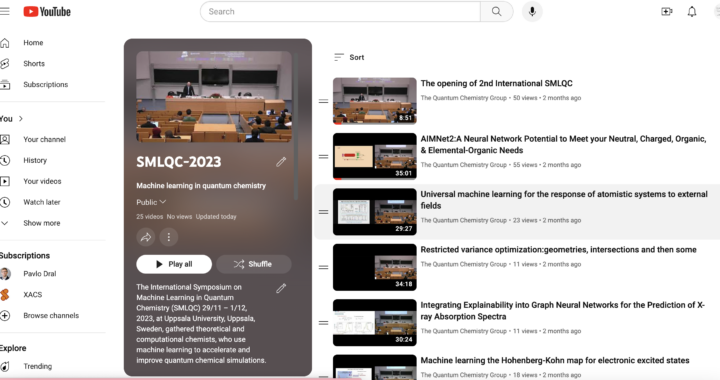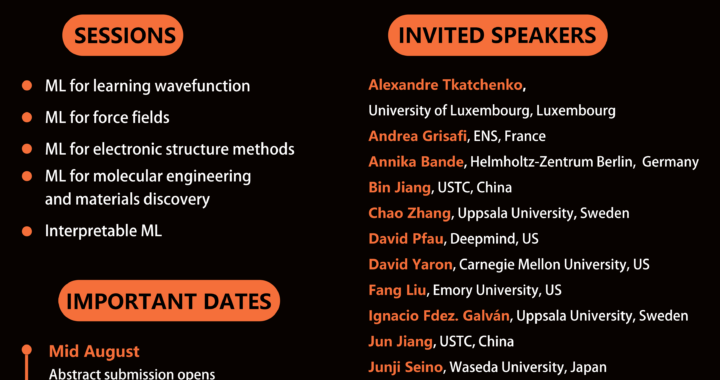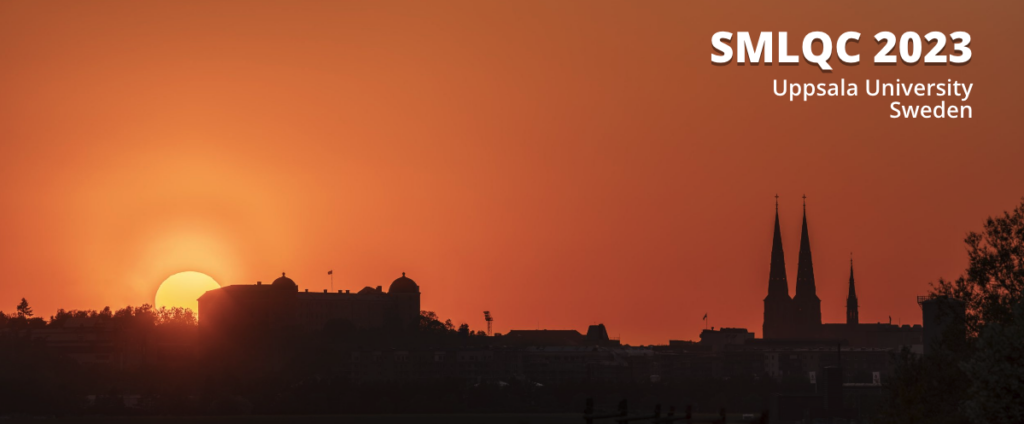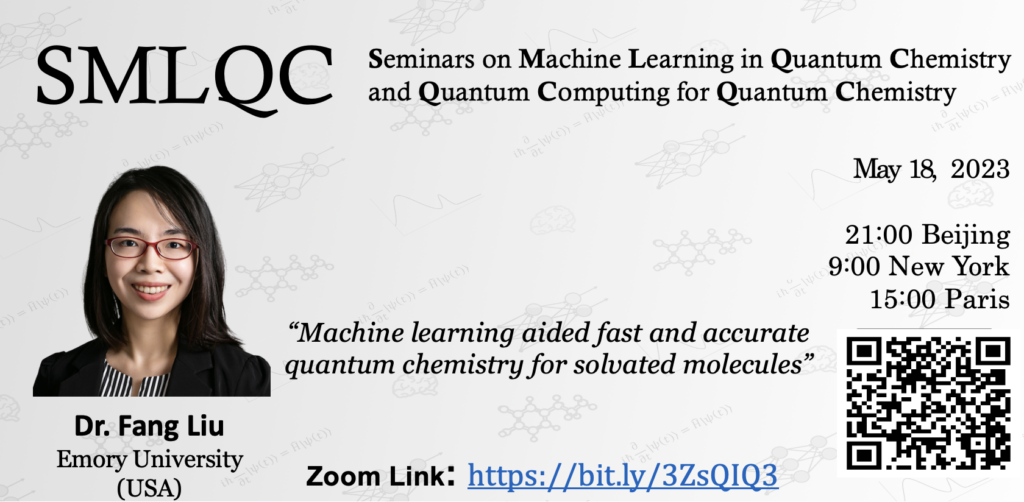The 2nd edition of the International Symposium on Machine Learning in Quantum Chemistry, SMLQC 2023, is approaching and will be held from November 29 to December 1 in Uppsala, Sweden. See the symposium’s website https://www.smlqc2023.com/ for more information.
The deadline for abstract submission for poster presentations and early-bird registration is 31 October 2023.
SMLQC gathers the theoretical and computational chemists, who use machine learning to accelerate and improve quantum chemical simulations. Many of the leading specialists in this expanding field will be giving invited talks at SMLQC 2023, see https://www.smlqc2023.com/77-2/.
SMLQC is a biannual event and the first edition, SMLQC 2021 in Xiamen, China, was a great success with a selection of inspiring talks available online: http://smlqc.mlatom.com/symposia/smlqc-2021/.
The SMLQC 2023 is organized in five thematic sessions reflecting relevant trends of machine learning application to quantum chemistry.
- The first theme is using ML for learning the very core of quantum chemistry – the wavefunction, either via unsupervised or supervised approaches, which can be then used to derive the required molecular and material properties.
- The second thematic session is one of the biggest and most mature – applications of ML as a force field which can in turn be employed for such typical simulations as geometry optimizations and dynamics.
- The third session is dedicated to highlighting recent progress in improving electronic structure methods with ML.
- The fourth theme is more of an applied nature and will deal with advances in ML for molecular engineering and materials discovery with desired quantum chemical properties.
- The final, fifth, thematic session will give the stage to highlighting how ML can be used to obtain not just numbers but insights through unsupervised learning and interpretable ML as well as performing analysis of molecular structure through simulating and interpreting spectra.
We are looking forward to seeing you in Uppsala!
The organizing committee:
Roland Lindh, Chao Zhang, and Ignacio F. Galván (Uppsala University, Sweden)
Pavlo O. Dral (Xiamen University, China)





